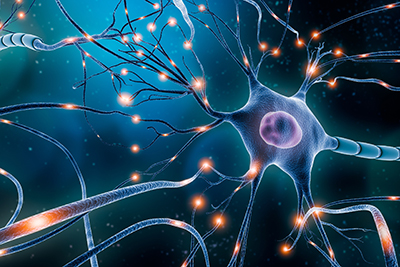
- This event has passed.
Brain-based learning
22nd March 2024

[vc_row][vc_column width=”2/3″][vc_column_text]Brain-Based Learning: Integrating Neuroscience into Curriculum Design
Understanding the ‘how’ in ‘how we learn’ is core to curriculum design, or intent, and when teaching children – the implementation. We all want children to ‘learn the curriculum’, but what exactly does that mean? How can we get greater impact? And, importantly, how do we do that in the classroom? That is what this course helps you to understand.
You will learn how the brain learns, and see how teaching is not a common sense job that just anyone can do. Effective teaching requires counterintuitive insights and an understanding of some of the fantastic complexities of the human brain.
The relationship between working memory and long-term memory is the most important factor in human cognition. Working memory can only hold so many pieces of information, but the contents of long-term memory massively increase the capacity of working memory.
The transformative effect of education is not that it changes students’ working memory capacity. Education instead changes the amount of knowledge held in long-term memory. The more knowledge held in long-term memory, the easier it is to add more.
This unique and fascinating course, based on John’s forthcoming book of the same title, covers the following – always making the content relatable to school curriculum planning and everyday classroom practice. Oh – and it also provides clear insight into the thinking behind current OFSTED inspections.
- Making connections in the brain
- The types of neural connections that form in long-term memory
- Working memory
- Retrieval practice – the best way to strengthen neural links in long-term memory
- The importance of physical exercise and sleep
- How to meet the learning needs of all learners
- Cognitive load theory – and overload
- Active learning
- The declarative and procedural memory systems
- Different forms of knowledge – what is the difference between knowledge and skills?
- Direct instruction and scaffolding
- Spacing, spaced repetition and interleaving
- Schemas – a student’s set of neural links related to a specific topic or concept
- Dopamine – the brain’s reward system
- Behaviour and habits
- Effective planning – learning intentions, goals, competencies, outcomes, targets, and more
Suitable for all phases and schools:
- Headteachers/Principals
- Senior Leaders
- Middle leaders and subject leaders
- Heads of Department
- Curriculum leaders
- Teachers
- Governors
[/vc_column_text][vc_row_inner][vc_column_inner width=”1/5″][kleo_icon icon=”clock-1″ icon_size=”3x” icon_color=”#75cdde”][/vc_column_inner][vc_column_inner width=”4/5″][vc_column_text text_color=”#000000″]9.30 am – 3.30 pm[/vc_column_text][/vc_column_inner][/vc_row_inner][/vc_column][vc_column width=”1/3″][vc_column_text]
[single_testimonial id=’39635′]
[single_testimonial id=’39633′]
[/vc_column_text][/vc_column][/vc_row]
Related Events
If you are interested in any of our courses as a twilight meeting, INSET or staff meetings for your school, please get in touch – contact info@jmbeducation.com for details.
Please read our terms and conditions – click here.
For our on-demand CPD training courses, please visit www.cpd.cloud



